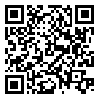Volume 2, Issue 1 (2022)
jpt 2022, 2(1): 61-79 |
Back to browse issues page
Download citation:
BibTeX | RIS | EndNote | Medlars | ProCite | Reference Manager | RefWorks
Send citation to:



BibTeX | RIS | EndNote | Medlars | ProCite | Reference Manager | RefWorks
Send citation to:
Soleimani N, Fath Taheri A, Peyk Herfeh S. Analysis of Rorty's Point of View Regarding the Separation of the Private Sphere from the Public Sphere. jpt 2022; 2 (1) :61-79
URL: http://jpt.modares.ac.ir/article-34-57888-en.html
URL: http://jpt.modares.ac.ir/article-34-57888-en.html
1- Department of Philosophy, Faculty Literature and Humanities, Imam Khomeini International University, Qazvin, Iran , n.soleimani2015@gmail.com
2- Department of Philosophy, Faculty Literature and Humanities, Imam Khomeini International University, Qazvin, Iran
2- Department of Philosophy, Faculty Literature and Humanities, Imam Khomeini International University, Qazvin, Iran
Abstract: (3726 Views)
Challenging the entire western philosophical tradition, which in his opinion has caused useless theoretical dualisms throughout the history of philosophy, Rorty wants to attempt to deconstruct and eliminate these dualisms in the context of "redemptive literary culture". By creating a dividing line between the private and public spheres, Rorty wants to specify the contribution and involvement of philosophers in presenting theoretical and philosophical views and to say that the political sphere does not need to acquire foundations from the individual criteria of the private sphere. It is as if Rorty wants to prevent the philosopher's ambitions and interference with theorizing by reducing philosophy to literature. In fact, he believes in the distinction between private and public spheres or politics, the philosopher's tool is imagination and his intellectual sphere is literary culture and his place is the private sphere. Assuming the acceptance of pragmatic criteria, doesn't this division of a person in two completely different areas make him a dual personality? Can this intellectual stance be reasonable and acceptable?
Article Type: Original Research |
Subject:
Philosophy of Politics (Analytical)
Received: 2021/11/22 | Accepted: 2022/02/14 | Published: 2022/03/20
Received: 2021/11/22 | Accepted: 2022/02/14 | Published: 2022/03/20
Send email to the article author
| Rights and permissions | |
 |
This work is licensed under a Creative Commons Attribution-NonCommercial 4.0 International License. |






